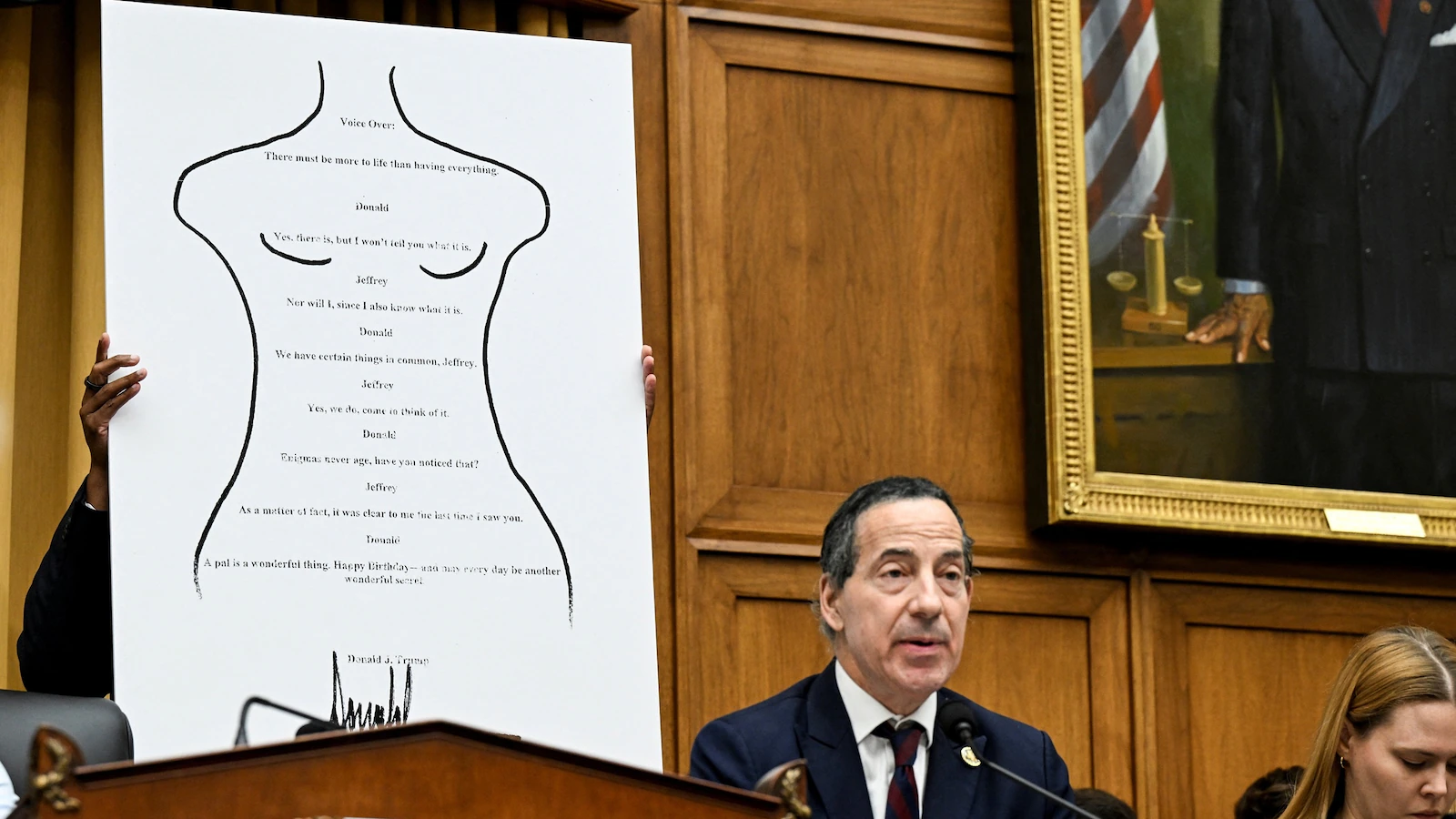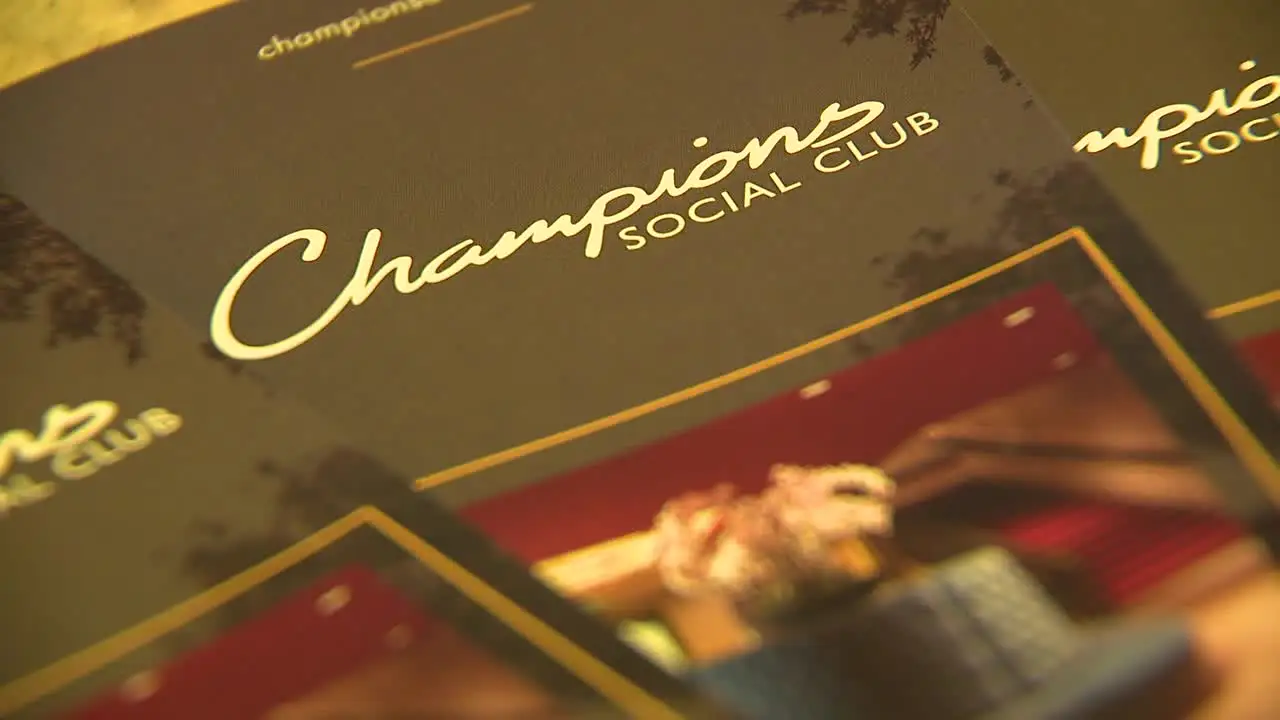By James Hill
Copyright go

The Wall Street Journal and its parent companies, Dow Jones and News Corp, filed a motion Monday to dismiss President Donald Trump’s $10 billion defamation lawsuit over the paper’s July article reporting on an alleged letter from Trump that was included in a 50th birthday book for the late financier and convicted sex offender Jeffrey Epstein in 2003.
The motion contends that the article is true.
“The Birthday Book as produced by the Epstein estate and later publicly released by the House Oversight Committee contains a letter identical to the one described in the Article,” the motion states.
The motion further contends that the article is not defamatory, arguing that “there is nothing defamatory about a person sending a bawdy note to a friend, and the Article cannot damage Plaintiff’s reputation as a matter of law.”
“The Complaint should be dismissed with prejudice, and the Court should award Defendants their reasonable attorneys’ fees and costs,” the motion states.
Trump filed the lawsuit in July in federal court in Florida, seeking damages of at least $10 billion.
The president has argued that the letter is fake and that the signature on the letter is not his.
The president’s defamation complaint asserted that the article “falsely pass[es] off as fact that President Trump, in 2003, wrote, drew, and signed this letter.” But the defense contends in its filing Monday that is a mischaracterization of the content of the article, which they contend “does not assert as a matter of fact that he personally signed the letter or drew the image,” the motion states.
The Journal also contends that the article cannot be defamatory to the president because the article “is consistent with [the president’s] reputation,” citing the president’s past comments about Epstein and other past statements about women, including a reference to the “Access Hollywood” tapes that surfaced just prior to his election in 2016.
“Because Plaintiff has publicly admitted that he was Epstein’s friend in the early 2000s, his reputation cannot be harmed by the suggestion that he was friends with Epstein in 2003. Indeed, he was listed in the Birthday Book as a ‘friend’ of Epstein. The fact that his relationship with Epstein may now be a political liability—over 20 years after the Birthday Book was presented to Epstein—does not change this conclusion,” the defendants contend.
“President Trump has a reputation both for being friendly with Epstein in 2003 and for making bawdy statements about women. Plaintiff will, therefore, never be able to establish the Defendants acted with knowing falsity in publishing the Article. In the end, of course, it turns out the Article was not false at all, as confirmed by the House Oversight Committee’s release of the Birthday Book,” the motion states.
The defense motion calls the President’s lawsuit “an affront to the First Amendment” and seeks dismissal with prejudice along with a grant of attorneys fees and costs to the defendants.
“[T]he President of the United States brought this lawsuit to silence a newspaper for publishing speech that was subsequently proven true by documents released by Congress to the American public. By its very nature, this meritless lawsuit threatens to chill the speech of those who dare to publish content that the President does not like. This lawsuit should not be permitted to proceed,” the defendants argued.
President Trump filed the defamation complaint in July against the Journal, its publisher Dow Jones, its corporate owner News Corporation and its executives, and the two reporters who wrote the story that first reported on Trump’s alleged contribution of a “bawdy letter” to a book for Epstein’s 50th birthday in 2003, three years before Epstein’s first arrest in Florida on charges of solicitation of prostitution.
The article reported that Trump’s alleged letter to Epstein contained text of an imaginary conversation between the two men within a hand-drawn outline of a naked woman. The letter concluded, the Journal reported, with the lines, “A pal is a wonderful thing, Happy Birthday — and may every day be another wonderful secret.”
After the article was published, Trump claimed he had alerted the newspaper in advance that the letter was not legitimate.
“The Wall Street Journal, and [News Corp. owner] Rupert Murdoch, personally, were warned directly by President Donald J. Trump that the supposed letter they printed by President Trump to Epstein was a FAKE and, if they print it, they will be sued,” Trump posted on his social media platform after the story was published. “The Press has to learn to be truthful, and not rely on sources that probably don’t even exist.”
Trump’s lawsuit alleges that the story “falsely claimed that [Trump] authored, drew, and signed a card to wish the late — and utterly disgraced — Jeffrey Epstein a happy fiftieth birthday,” according to the complaint filed in federal court in Florida. The filing alleges that “no authentic letter or drawing exists” and that the defendants “concocted” the story to malign Trump’s “character and integrity.”
Earlier this month, lawyers for the executors of Epstein’s estate produced a copy of Epstein’s 50th birthday book in response to a subpoena from the Republican-led House Committee on Oversight and Government Reform. Top Democrats on the committee quickly publicized an image of the alleged contribution from Trump, which largely tracked with the description of the letter published in the Wall Street Journal.
The Republican chairman of the committee, Rep. James Comer, R-Ky., subsequently released additional pages from the birthday book, a 238-page bound volume that includes a “prologue” that is attributed to Ghislaine Maxwell, the convicted co-conspirator of Epstein. The contributors are divided into the categories of Family, Brooklyn, Girlfriends, Children, Friends, Science, Special Assistants, and Business, with many of the names redacted.
The White House continued to deny the authenticity of the letter.
“The president did not write this letter. He did not sign this letter. And that’s why the president’s external legal team is aggressively pursuing litigation against the Wall Street Journal, and they will continue to do so,” White House press secretary Karoline Leavitt said at press briefing.
“It’s not my signature. And it’s not the way I speak. And anybody that’s covered me for a long time, knows — that’s not my language,” Trump said when asked about the matter earlier this month.



